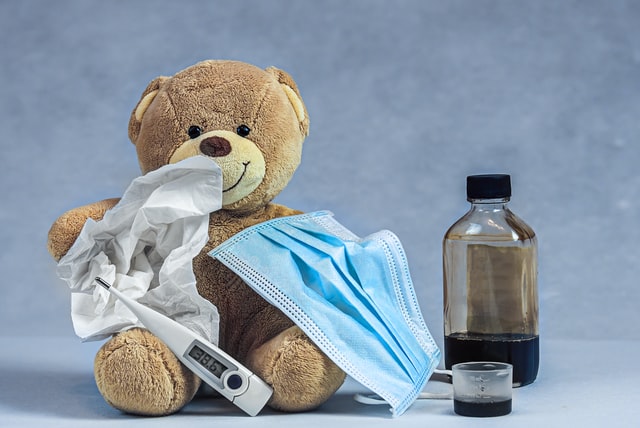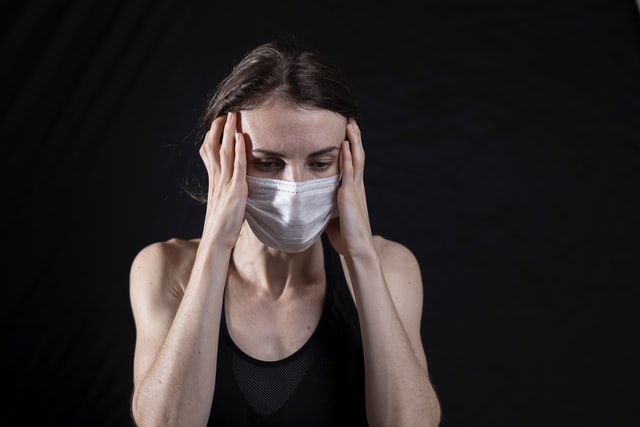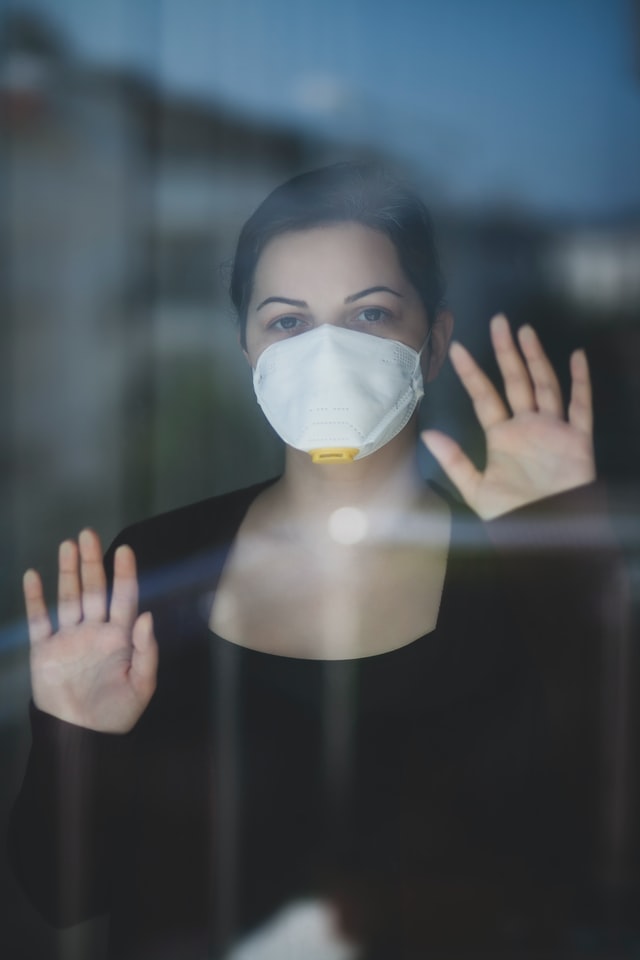Your body develops antibodies as soon as it gets exposed to a new infection. Similarly, your immune system starts producing antibodies when it identifies the entry of coronavirus in your body. Moreover, the COVID antibody test is special testing done to check if you contracted the virus before and successfully recovered from it.
In addition, it may also indicate if you have been vaccinated earlier or not. but, antibody testing is not needed for every person; there are some eligibility requirements that should be taken care of. So, if you’re willing to get yourself checked with an COVID-19 antibody test, you are likely to fall into the at least one of these categories:
- Plasma Donors
- First Line Responders
- People Scheduled for Surgery
- People With Suspected Coronavirus
- False Negative Patients
- Contact With a COVID-19-affected Person

The first question that comes to mind when someone is asked why they should get a coronavirus antibody test is: how will I know if it’s positive? What if I have antibodies to other infections? Or if I have a history of the disease? The answer to these questions can be extremely valuable. The test can also help determine whether a person has an immunity or not to the coronavirus.
Information campaign on coronavirus antibody testing
The government is undertaking a new information campaign on coronavirus antibody testing, aimed at raising awareness of the disease. The new service is part of a wider UK Department of Health and Social Care programme aimed at supporting surveillance studies across the country. Tests will now be conducted on anyone aged 18 or older and a further group of key workers will be included in the study over time. The government hopes to introduce a test at the NHS a few months after the outbreak, in order to help public health officials assess the impact of the disease.
A series of government ads promoting the test also raised concerns. One ad compared the test to a pregnancy test and suggested that antibodies would determine whether someone was infected. But a positive test can’t be used to tell whether a person is infected for 20 days after exposure. So, the tests are not a perfect indicator of whether a person is infected with COVID-19.
Earlier, the United Kingdom was hit by three million cases between July and October. The infection rate is higher than in continental Europe, which relaxed its COVID-19 restrictions later on. In fact, the number of infections per million people in Spain and Germany was significantly lower than the rates in the United Kingdom, with 468 infections per million people. Earlier this year, the restrictions were loosened. However, the restrictions remain in place for now.
The government has also set up an information campaign about coronavirus antibody testing for the general public. The new test will allow people with weakened immune systems to receive the test without having to pay for it. It is the first time that coronavirus antibody tests will be made available to the general public. However, it is important to remember that the test will be only a test and should not be interpreted as an indication of an infection.
Symptoms of a positive test
Although the rapid COVID-19 coronavirus antibody test is a reliable indicator of an infection with the disease, there is a chance that you may still be infected. This is because a positive test can occur even if you have no symptoms of the disease. It can also be a false negative if you are infected with another coronavirus or have poor antibody production.
During an antibody test, the lab will detect antibodies that fight COVID-19 by analyzing the nucleocapsid protein. These antibodies are produced by the immune system in response to an infection and are specific to a particular strain of the virus. The antibodies are present in the liquid part of blood specimens called plasma and serum. Depending on the symptoms, the healthcare provider may order both the IgG and Nucleocapsid Protein antibody tests.
COVID-19 vaccinations will teach the body to produce antibodies to fight the disease. However, it can take a few weeks before antibodies can be detected in a positive test. Vaccines can take as long as one to three weeks to be effective. However, if you have had a recent COVID-19 vaccination, you may still be infected with the virus. In such a case, a second COVID-19 antibody test may be necessary.
If your symptoms are due to COVID-19, you may be positive. If your doctor suspects you may have the disease, a positive COVID-19 antibody test is recommended. It takes approximately 12 days for antibodies to develop in the body. Symptoms of a positive COVID-19 antibody test include a fever, headache, and irritability. If the test is positive, you may need to get an injection to clear the virus from your system.

Detection of antibodies from previous infection
Detection of antibodies from previous infections with coronavirus antibody tests UK is a clinical laboratory test that measures the presence of antibodies to the disease-causing virus. Various methods are used to obtain the sample. Some use venous blood or specialist laboratory equipment. Others use finger-prick blood samples. People who want to have their antibodies checked should contact the study co-ordinator to find out the details. The aim of these tests is to help researchers understand the body’s reaction to viruses and vaccinations. However, this test is not a diagnostic tool for current infection, and it will soon stop operating in March 2022.
The UK government has a five-pillar national COVID-19 testing programme, including the coronavirus antibody test. The test will help people get back to work and determine the proportion of the population that is infected. The Office for National Statistics carries out population antibody testing as part of its national survey of COVID-19 infection. The World Health Organization has also published guidelines for global surveillance of the disease.
The British Society for Immunology and the Academy of Medical Sciences have published a review of the research and identified thirteen key research priorities. The review highlights uncertainties regarding the test’s accuracy. It also highlights the potential for misuse. Despite the lack of a definitive test, people who have antibodies to the disease are still at risk of transmitting the disease to others if they touch contaminated surfaces. As such, it is essential to practice good hand hygiene even after testing positive for the coronavirus antibody test UK.
The test uses saliva or blood samples to detect the presence of COVID antibodies from a previous infection. COVID antibodies are the ones that are specifically designed to detect the presence of the virus. These antibodies are produced by the immune system in response to a previous infection and persist for up to six months. Unlike lateral flow and LAMP tests, these tests are not accurate. The reason for this is that the antibodies can be broken down in the blood after a few months.
False positives
A new study has found that antibodies to the coronavirus can produce false positives for about 15% of patients. That could mean that people with previous infection may have antibodies to the virus but not realize that they are infected. False positives could lead to a false sense of immunity. Researchers studied three antibodies, one from a California laboratory and three from a different laboratory.
In spite of the high number of false-positives associated with antibodies tests, this tool is still useful in some circumstances, such as population-wide surveys. It can answer crucial questions about the prevalence of coronavirus in a population, which will help public health officials determine the most appropriate measures for reestablishing normal life. The study is based on the work of Dr. Jeremy Gabrysch, a California biologist, who formulated the approach that led to this article.
Another possible cause of false positives is a person not having antibodies to COVID-19 or SARS-CoV-2. When this happens, it is best to discuss the results with a healthcare professional. If the test results are negative, the healthcare professional can explain the results and suggest another antibody test. For example, someone who does not have antibodies to COVID-19 may not have been infected with COVID-19, or have not received the vaccine to protect them from the disease. Consequently, it is not advisable to test for antibodies to this virus after vaccination.
In addition to avoiding unnecessary testing, doctors must also ensure that the antibodies are highly specific and accurate. False positives are not uncommon in this population, and the FDA also includes a calculator to calculate PPV for individual and combined tests. The false-positive rate is higher than the current infection rates in Miami-Dade County, Florida, and is approximately 14%. The positive predictive value of the IgG antibody tests based on this data is 73%, resulting in 14/1000 false-positive results.
Discrimination caused by a positive test
Although it is unclear how widespread the reduced adherence to measures will be, the results of a recent study suggest that it could affect social norms and the way that people behave in a negative test. It is possible that people who are positive for antibodies may copy the behavior of people who are negative, and this could create a situation in which the public becomes more tolerant of anti-HIV attitudes. In addition, a negative test could lead to increased caution, reduced socialising, and anxiety about changing one’s behaviour. In order to combat this, it is vital that public communications about the test are developed in collaboration with the public. This study provides a framework for how information can be presented to the public and how it can be used in practice.
An employer could be legally liable if a test for a positive coronavirus antibody results in discrimination against a person with HIV. If the test shows that an employee has antibodies to the virus, they can be denied access to certain privileges in the workplace. This could lead to a disability bias lawsuit. Many employers are considering this option as a long-term solution, but they have not yet responded to a request for comment.
Moreover, the results of a positive antibody test can cause divisions in society. They may discourage people from adhering to pandemic control measures. As such, those who have a positive test may be considered to have a lower risk of reinfection and transmission. This can also lead to an increased sense of cynicism in people, who feel like they are being discriminated against because they have a negative test.
What Do the Results Indicate?
Your medical professional will interpret your antibody testing report findings in the following ways:
Positive Test Results
The positive results of the antibody test indicate the development of COVID-19 antibodies in your bloodstream. This is proof that the virus infected you previously in any form. One thing to note is that you can also test positive without actually contracting the virus. Moreover, in some cases, you can also receive a false-positive report.
Negative Test Results
The negative results of the antibody test indicate that your body didn’t develop any sort of antibodies to fight COVID-19. So, you were probably never infected with the virus. On the other hand, it can also mean that you still need time to produce antibodies as your body takes a few weeks to produce new ones. As a result, you will test false-negative.


A designer and writer who specialises in handcrafted stationery and minimalist home accents. Alice focuses on timeless aesthetics, sustainable materials, and the stories behind artisanal paper goods.

